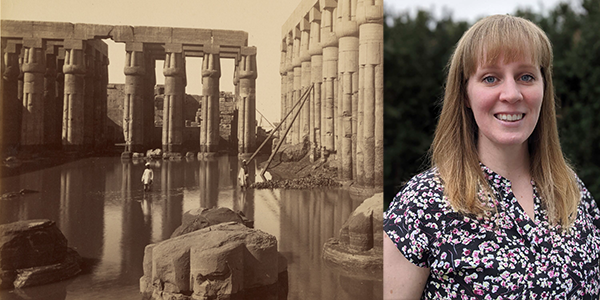
- This event has passed.
Moriarty Science Seminar: River Life in Ancient Egypt: The Nile and its Varied Environments
March 11, 12:00 pm - 1:00 pm
Online
Event Navigation

R.W. Moriarty Science Seminar Presents: “River Life in Ancient Egypt: The Nile and its Varied Environments”
Speaker: Christine Johnston, Western Washington University.
Ancient Egyptian society developed around and was dependent on the Nile River. It was the physical and cultural heart of the pharaonic state, playing important roles in transportation and trade, agriculture and subsistence, and belief and ideology. The Nile brought bounty to the people of Egypt through both the resources it held and the rich sediments it deposited across the Nile valley during the annual inundation. These sediments supported the production of agricultural products like grain, while the river environment provided fish and fowl and supported the raising of livestock and the cultivation of plants like flax and papyrus used to make linen and paper. Although the Nile represented an important source of life, it could also be dangerous. It was home to creatures like hippopotami and crocodiles and helped to spread water- and insect-borne parasites and illnesses like malaria. Fluctuations in the annual inundation could also have devastating effects on agriculture, while the migration of the river across the valley altered physical and cultural landscapes. This presentation will focus on the regional differences through the Egyptian Nile Valley, the changes that occurred over time, and the impact of the river on the lives and beliefs of the ancient Egyptians.
This free event will take place ONLINE via Zoom on Monday, March 11, 2024 at Noon.
Click to download the printable program.
Seminar 167
.
